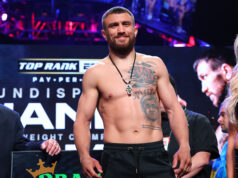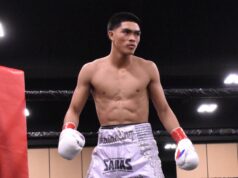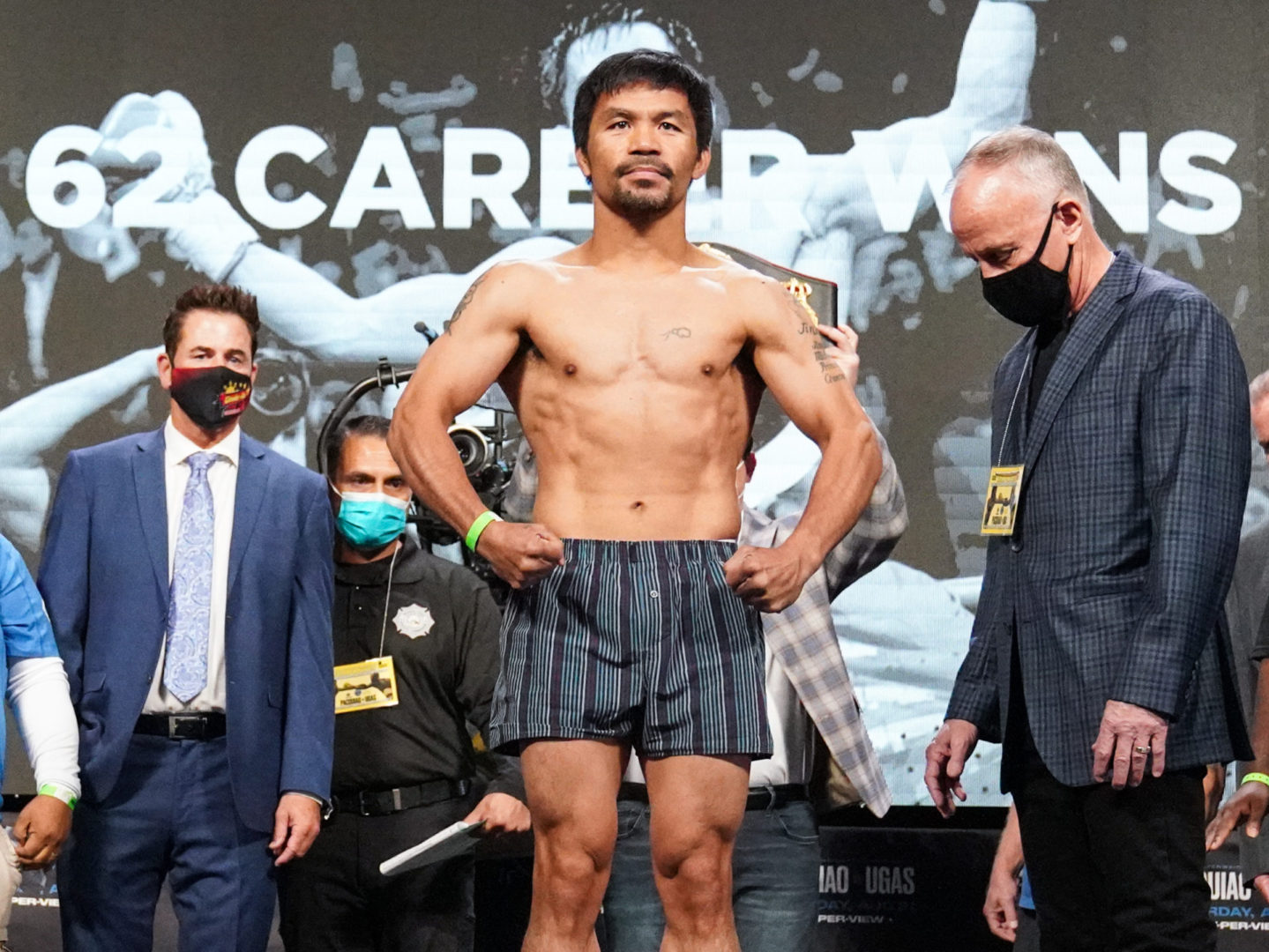By Bart Barry-

Friday in an excellent conclusion to the World Boxing Super Series’ excellent first season, super middleweight edition, England’s Callum Smith stopped England’s George Groves in round 7 to win the tournament and become The Ring world champion. The match happened in Saudi Arabia on DAZN, a broadcaster that, in six days, at a weekly rate of $2.33, featured the world’s best heavyweight and the world’s best super middleweight, each, in competitive matches that ended with knockouts.
Let that sentence mark how much our beloved sport will miss HBO.
Smith won a world title exactly as you are supposed to turn the feat, with one’s opposite number beaten till he cannot continue – whether via unconsciousness or in Groves’ case a deep desire to relent. Groves was awake and headshaking halfway through the count, Friday, emptied, beaten in every sense of the word.
Groves’ foldings ever come suddenly. While nothing incriminating happened much before the Smith lefthook that made Groves consider other careers, something happened between the men in round 6. Groves became a touch more theatrical and Smith more cunning. Groves began an incongruous tactical pairing of throwing punches harder while circling wider. Smith ignored Groves’ noisy punches and inferred Groves’ true signal. Groves’ twitching did little to dissuade Smith in the fight’s opening and much less as Groves did connect with what blows his feints threatened. And all the while Groves made the much wider circles on the blue mat, and Smith knew conditioning’d become a factor eventually.
It wasn’t conditioning that turned Groves into Smith’s dandy hook – “a peach” as DAZN christened it properly – but it was fatigue that made a fully conscious Groves decide to rise at 10 1/2 and not bother protesting as he did when Carl Froch origamied him 4 1/2 years ago. With a minute to go in round 7 Groves had every right to continue and no desire whatever. It taught Groves a little something new about himself, which is ever the most devastating thing you can do a fighter like George Groves.
Groves more than most considers a prizefight a search for character weaknesses and believes his weaknesses fully inventoried before any opening bell rings. He fancies himself both introspective and psychologically superior; Groves has answered every one of hundreds of questions he’s asked himself about George Groves but he’s not so sure you’ve done the same. There’s a fragility to you Groves sees, while any fragilities you sense in him are mere traps, blemishes on his facade he applied like decals to fool you, definitely not cracks. This set of autobeliefs has taken Groves pretty far indeed, confirming him twice the second best man in his weightclass while getting him stamped number 2 by getting stomped by numbers 1. Groves has tangible talents – quickness and form, a good chin and fitness, interesting offense and an eagerness to counter – but not championship intangibles in the ring to match what brand awareness and marketing intangibles he employs outside it.
Smith on the other hand has these intangibles, not unlike Froch – which is not, yet, to liken one to the other. Each beat the spark out Groves, but the comparisons stop there. Smith does things classical well, and he recognizes as an enormous super middleweight he begins any match with what initiative the other man must seize. By virtue of his size and technique Smith enters any title fight at 168 pounds up a round or two, and he does nothing to squander this lead. He maintains a masculine poise, or perhaps it’s juxtaposition coloring this Yank’s view of things.
Twenty-four hours before Smith unmanned Groves an entirely different sort of confrontation happened before American eyes. The testimony of a man who would be, and probably still improbably will be, a justice of the Supreme Court of the United States. What follows is neither political nor partisan; it is instead a measure of what sort of public manliness Brett Kavanaugh tried to display, Thursday, a performance subverted effortlessly by Callum Smith’s manly comportment on a small and foreign platform Friday.
Sniffling and barking, his face contorted in something mean and measly, Kavanaugh sought to intimidate septuagenarians and women with a performance he no doubt imagined wrathful. Instead he disgusted most, the septuagenarians wishing they were 20 years younger to punch his mealy mouth, and every woman knowing perfectly well what he was up to. The performance, Americans quickly inferred, was not for us but for our President, alone, a man whose timing and method were learned in the improvisational crucible of professional wrestling. There was something a touch regional about it, too, the audiencemembers on Kavanaugh’s stageleft hailing from professional-wrestling hotbeds like the Carolinas and Texas, those on his right hailing from places where ice-hockey tryouts often outpopulate even football, states like Vermont, Rhode Island, Connecticut, Minnesota. Professional wrestlers are gigantic and flamboyant performers who publicly swear to inflict unthinkable violence on other men before (albeit athletically) enacting rehearsed and premeditated spectacles. Ice-hockey players, conversely, are men of comparatively unexceptional physiques who publicly compliment their opponents before committing nightly acts of unpremeditated assault.
On a spectrum of masculinity, with a five-year-old Shirley Temple at one pole and a 25-year-old Roberto Duran the other, Brett Kavanaugh was no nearer Duran than Temple during his Thursday performance. And on Friday, Callum Smith damn near touched the Duran pole by coolly separating George Groves from his aggression while showing no fear and evincing no weakness to a man both desperately seeking it and possessed of the tools for its discovery.
Bart Barry can be reached via Twitter @bartbarry










